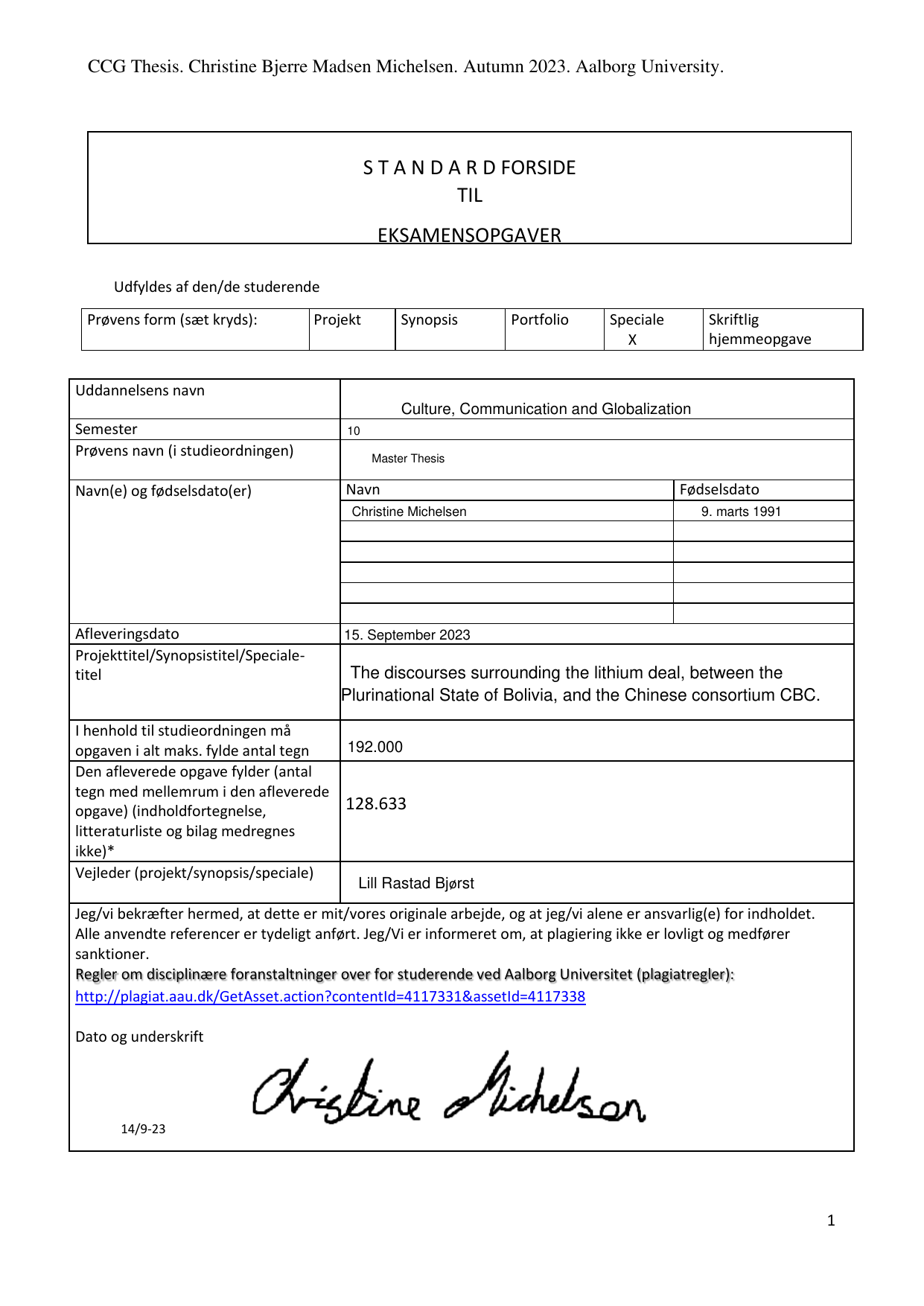
The discourses surrounding the lithium deal, between the Plurinational State of Bolivia, and the Chinese consortium CBC.
Translated title
The discourses surrounding the lithium deal, between the Plurinational State of Bolivia, and the Chinese consortium CBC.
Term
4. term
Publication year
2023
Submitted on
2023-09-14
Pages
53
Abstract
Through critical discourse analysis, coupled with environmental discourse, this thesis sets out to answer; How does the Government of Bolivia address the environmental aspect of lithium mining? How do other participating actors describe the event; which discourses do they employ? in the press conference, held the 23rd of January, in the presidential palace in La Paz, Bolivia. It regards the business agreement between the state of Bolivia, and the Chinese consortium CBC, to industrialize the lithium found in the salt flats of Uyuni, and Coipasa. The thesis works from an interpretive epistemology, and social constructivist ontology, both of which supports critical discourse analysis. The main data is a transcript of a video, taken of the press conference, which then was translated to English, by the author. Both the original Spanish, and the English version, can be found as appendixes to this thesis. The earlier government, under Evo Morales, also attempted to initiate lithium mining, with the German company ACI Systems, but was unsuccessful, due to protests. The new president, Luis Arce is conscious about this, and makes sure that he, and his administration, utilizes all the discourses, that might persuade the people to support this industrialization. He does this through nationalism, by linking lithium to the national identity, thus creating a new identity for Bolivia, as a lithium-producing nation. Also, through development, and socialism, with which he displays the societal benefits, that can be accomplished, with the revenue from selling the lithium. This leads to another important discourse, namely, economics, which CBC also uses. Lithium mining is portrayed as a lucrative business, with a great future, thanks to the green transition agenda, and the related boom in electrical vehicles. Additionally, the discourse of globalization is employed to state, that the industrialization is not only an attempt to increase the Bolivians’ standards of living, but is indeed a means to save the world, from climate change. However, the discourse of water is omitted, which is interesting, seeing as lithium mining is a very water dependent process, but that is exactly why the speakers are so careful about evoking it. Together with other issues (royalties, transparency, and participation) water was part of the protest campaign of COMCIPO, that ended the previous attempt of lithium industrialization in Bolivia.
Documents
